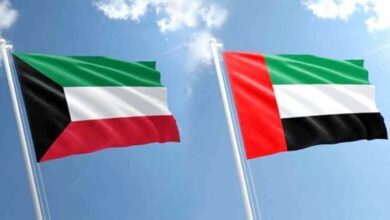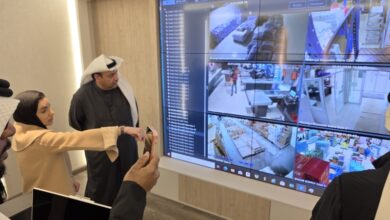Kuwait and Arbitration: A Legislative Necessity to Accelerate Development and Enhance Competitiveness
Although Kuwait is an active member of international and regional organizations in the Gulf, both in commercial arbitration and international judicial bodies, it has not enacted its own arbitration law. This may affect its standing and ranking in international forums and indicators related to contractual justice and ease of doing business.

By Tareq Yousef AlShumaimry
Former Secretary-General of the Commercial Arbitration Centre of the Gulf Cooperation Council
In an increasingly complex world where economic interests are intertwined, the importance of alternative dispute resolution mechanisms, particularly arbitration, is becoming increasingly important. While countries around the world seek to enhance their investment environment and international competitiveness, the State of Kuwait faces a pressing legislative challenge: the absence of an independent and modern national arbitration law. This is hindering its development and impeding the achievement of its ambitious 2035 vision.
The legislative gap is impeding progress. Till today, there is no independent and clear national legislative framework for local arbitration in Kuwait regarding procedures. This absence makes Kuwait an outlier among the Gulf Cooperation Council (GCC) countries, which have all issued their own national arbitration laws and have been continuously updating them since 1997. Although Kuwait is an active member of international and regional organizations in the Gulf, both in commercial arbitration and international judicial bodies, it has not enacted its own arbitration law. This may affect its standing and ranking in international forums and indicators related to contractual justice and ease of doing business.
The recent period, especially after the COVID-19 pandemic and the emergence of remote arbitration, has witnessed a significant increase in demand for arbitration internationally and regionally. In some developed countries, the rate of resorting to arbitration has reached 80 percent as an alternative to other dispute resolution systems. This global trend underscores the growing need for local arbitration institutions, which we see spreading and developing regionally and internationally.
Arbitration is not merely a means of resolving disputes; it is a vital component of the economic development equation in Kuwait. Arbitration can serve as a form of diversification of the country’s sources of income by attracting cases to be processed within Kuwait. It also enhances competitiveness and improves the business environment, contributing to attracting foreign investors and strengthening investor and industrial confidence in the country.
To achieve a qualitative leap in the field of arbitration, Kuwait needs an integrated arbitration education system at specialized universities and institutes, with international connections. This will create a generation of arbitration experts who support Kuwait Vision 2035 and improve its indicators internationally and regionally. The state’s commitment to and issuance of modern arbitration legislation, along with increasing the number and percentage of arbitration specialists, will lead to increased arbitration awareness in society.
In addition, a safe environment must be provided for witnesses, experts, and legal advisors to participate in local and international arbitration, and advanced logistical facilities must be provided to support arbitration. It is also necessary to establish the necessary immunities for those working in their arbitration duties, incorporate women’s participation in arbitration in accordance with international requirements, and increase access to international arbitration organizations and establish arbitration partnerships with them to support local legislation and ensure its compatibility with international arbitration and legislation.
It is also necessary to review some of the provisions of the current judicial arbitration law in Kuwait by developing a comprehensive and developed arbitration law that is consistent with modern international arbitration standards and principles. This law must be consistent with the UNCITRAL Model Law on Arbitration and include the introduction of digitalization, technology, and artificial intelligence in line with international standards and practices.
Most countries around the world update and develop their arbitration laws annually to reflect emerging and adopted international arbitration practices. Therefore, the quality of judicial procedures in issuing advanced legislation for dispute resolution, most notably arbitration, plays a significant role in facilitating business, reducing the time and financial and administrative burden on the state, and alleviating pressure on traditional courts.
The State of Kuwait ranks low internationally in contractual justice, particularly with regard to ease of doing business, and is outperformed in the Arab world by countries such as the UAE, Jordan, Tunisia, Algeria, and Morocco. The Global Competitiveness Index on contractual justice also shows Kuwait lagging behind regionally and internationally due to some outdated or non-issued legislation, such as the Arbitration and Alternative Dispute Resolution Law.
Therefore, governmental support for arbitration is required by facilitating government agencies’ recourse to local or international arbitration and implementing the local laws that will be issued in this regard. Legislative cover must also be established for local arbitration centers, and unified systems and approved standards must be developed to ensure the validity and safety of resorting to them, leading to the ease of implementing their arbitration decisions.
The concept and principle of arbitration and alternative dispute resolution are always based on a focus on solutions rather than rigid positions. This contributes to the continuity and stability of Kuwaiti relations and human capital. They also improve Kuwait’s competitiveness indicators regionally and internationally, enhance the environment for the quality of settlement outcomes, and reduce significant financial and administrative costs and burdens, directly or indirectly, for both the state and the individuals benefiting from these modern laws.
Arbitration, alternative dispute resolution, and traditional courts are integrated national systems that enhance contractual justice and support Kuwait’s competitiveness in achieving the goals of Kuwait Vision 2035. The issuance of a modern and advanced arbitration law has become an urgent necessity to ensure a prosperous economic future and a prestigious international standing for Kuwait.

Tareq Yousef AlShumaimry, served as Chairman of the Finance Committee and Chairman of the General Budget Committee of the Permanent Court of Arbitration in The Hague (PCA) and an observer in the Administrative Council of the Court and the Consular at International Court of Justice (ICJ) and the Embassy of the State of Kuwait in the Netherlands during this period from 2013 to 2020. Email: tareq@alshumaimry.com




























